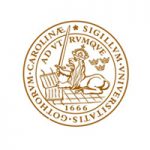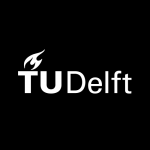项目介绍
Lund University was founded in 1666 and is repeatedly ranked among the world’s top universities. The University has around 47 000 students and more than 8 800 staff based in Lund, Helsingborg and Malmö. We are united in our efforts to understand, explain and improve our world and the human condition.
Lund University welcomes applicants with diverse backgrounds and experiences. We regard gender equality and diversity as a strength and an asset.
Both applied and fundamental research is conducted at the division of Biotechnology and Applied Microbiologyn in the field of biotechnology, focusing on microbial physiology, precision fermentation, synthetic biology, bioinformatics, enzymes, and enzymatic processes. The purpose of the research is often linked to the development of technology to create sustainable and circular solutions for products and services with applications in the environment, analysis, food, water, agriculture, medicine, and industrial biotechnology for the production of materials, chemicals, and fuels.
The research linked to this advertised position will be performed within the project “Sustainable bio-based furan platform for low-carbon industry – STAR” funded by the Swedish Energy Agency. The work will mainly be carried out at the Division of Biotechnology and Applied Microbiology located at Kemicentrum, Lund University, in collaboration with other project parties at the department of Process and Life Science Engineering (PLE) and the Department of Environmental and Energy Systems Studies.
Subject description
Biotechnology is of central importance for the transition towards a sustainable society. In the doctoral education subject of Biotechnology, microorganisms or components thereof are developed and utilized to reach technically useful goals with environmentally sustainable methods. The research subject focuses on: i) microbial and enzymatic methods to create chemicals, materials and energy carriers from renewable raw materials. ii) increased resource utilization in biorefineries through use/development of biotechnological methods/tools. iii) biotechnological methods for remediation of contaminated environments. iv) development of effective microorganisms and enzymes via molecular biology and enzyme engineering methods as catalysts for these processes, v) isolation and utilization of microorganisms and enzymes from extreme environments, and vi) development of bioanalysis and biosensors for utilization in health care, environment – and bioprocess monitoring.
Work duties
The main duties of doctoral students are to devote themselves to their research studies which includes participating in research projects and third cycle courses. The work duties will also include teaching and other departmental duties (no more than 20%).
In this position, the tasks will include the design and development of green and cost-effective bioprocesses for the synthesis of bio-based furan building blocks for recyclable materials from cellulose and hemicellulose fractions of biomass.
Detailed description of the work duties, such as:
- Development of microbial cell factories via synthetic biology, metabolic engineering and adaptive evolution methods
- Evaluation of the cells for transformation of furan molecules
- Protein engineering for improvement of activity of a relevant enzyme
- Process optimization for scale-up, and
- Participation in techno-economic analysis studies
Admission requirements
A person meets the general admission requirements for third-cycle courses and study programmes if the applicant:
- has been awarded a second-cycle qualification, or
- has satisfied the requirements for courses comprising at least 240 credits of which at least 60 credits were awarded in the second cycle, or
- has acquired substantially equivalent knowledge in some other way in Sweden or abroad.
A person meets the specific admission requirements for third cycle studies in Biotechnology if the applicant has:
- at least 30 higher education credits in the subject area of life sciences, which includes at least 15 higher education credits at advanced level and an in-depth work of 15 higher education credits at advanced level in the subject area, or
civil engineering degree, master’s degree in biotechnology or - Another degree at a comparable advanced level with elements of applied life sciences.
- Additional requirements:
- Very good oral and written proficiency in English.
Assessment criteria
Selection for third-cycle studies is based on the student’s potential to profit from such studies. The assessment of potential is made primarily on the basis of academic results from the first and second cycle. Special attention is paid to the following:
- Knowledge and skills relevant to the thesis project and the subject of study
- An assessment of ability to work independently and to formulate and tackle research problems.
- Written and oral communication skills.
- Other experience relevant to the third-cycle studies, e.g. participation in R&D projects in academia or industry with laboratory experience of methods for microbial cultivation, gene technology and chromatographic analysis.
Other assessment criteria:
- Theoretical and practical knowledge in microbiological techniques, different fermentation techniques, use of bioinformatics tools, gene cloning and transformation methods, enzyme activity measurements, protein purification techniques, separation of low molecular weight products, analytical techniques such as chromatography (HPLC, GC), electrophoresis, etc.
- Experience in design of experiments and statistical analysis
- Some experience of working in a research project in nearby areas is meritorious
- Ability to perform critical review of literature.
Consideration will also be given to good collaborative skills, drive and independence, and how the applicant, through experience and skills, is deemed to have the abilities necessary for successfully completing the third cycle programme.
We offer
Lund University is a public authority which means that employees get particular benefits, generous annual leave and an advantageous occupational pension scheme.
Read more on the University website about being a Lund University employee Work at Lund University. https://www.lunduniversity.lu.se/about-university/work-lund-university
Terms of employment
Only those admitted to third cycle studies may be appointed to a doctoral studentship. Third cycle studies at LTH consist of full-time studies for 4 years. A doctoral studentship is a fixed-term employment of a maximum of 5 years (including 20% departmental duties). Doctoral studentships are regulated in the Higher Education Ordinance (1993:100), chapter 5, 1-7 §§.
How to apply
Applications shall be written in English and include a cover letter stating the reasons why you are interested in the position and in what way the research project corresponds to your interests and educational background. The application must also contain a CV, degree certificate or equivalent, and other documents you wish to be considered (grade transcripts, contact information for your references, letters of recommendation, etc.).
Welcome to apply!
联系方式
电话: +46 (0)46 222 0000相关项目推荐
KD博士实时收录全球顶尖院校的博士项目,总有一个项目等着你!





